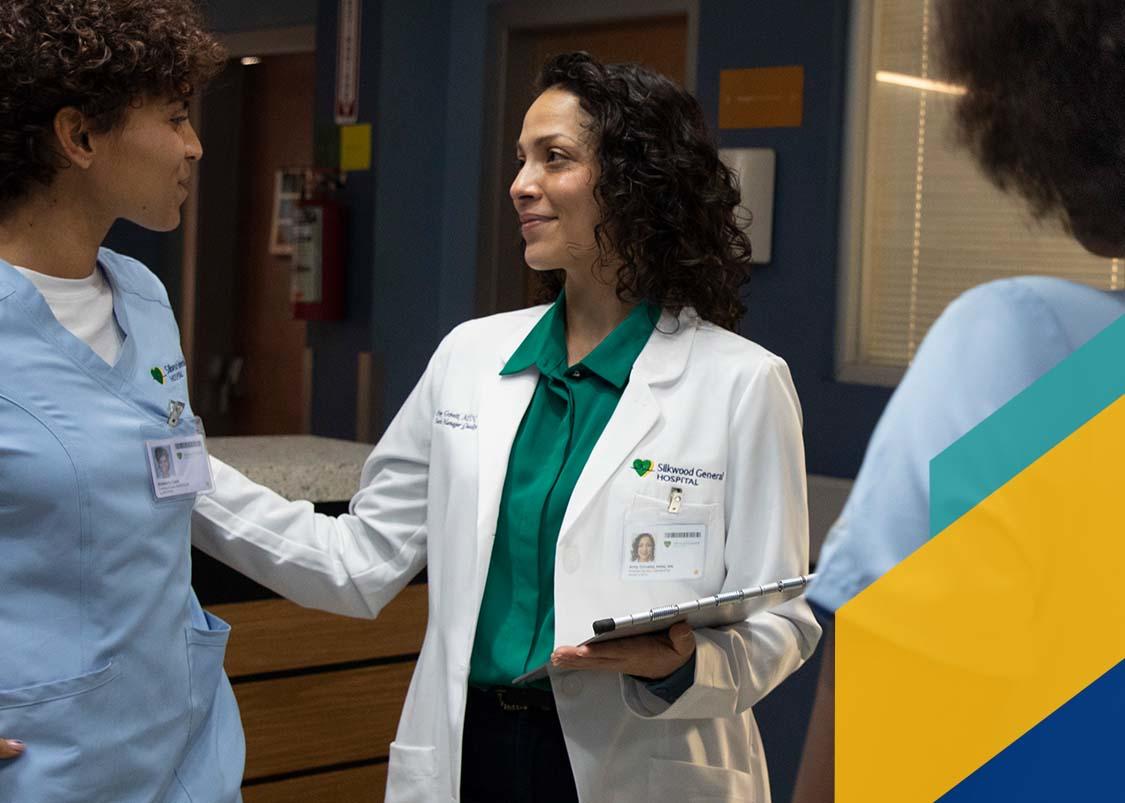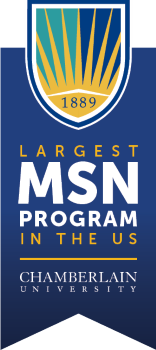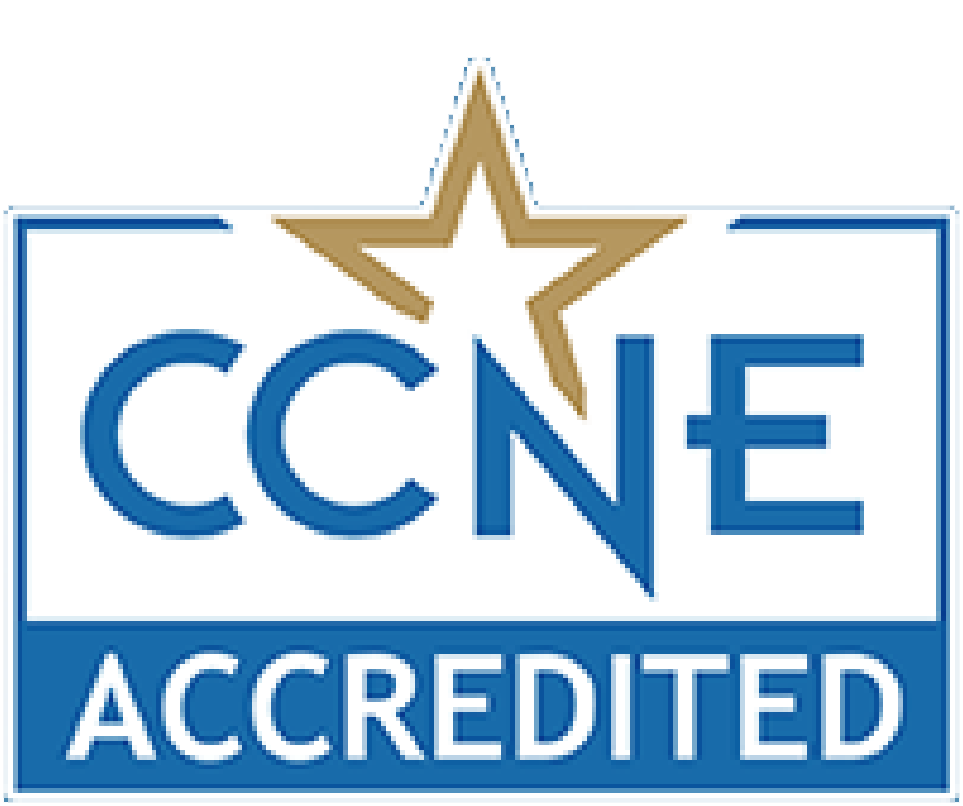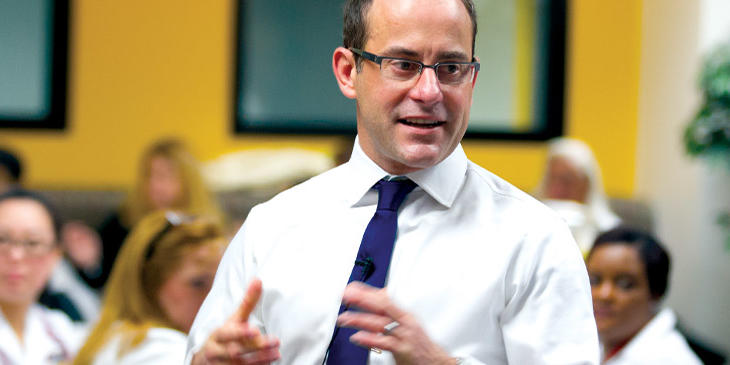Nurse Practitioner Tracks
Choose from two thriving Adult-Gerontology Nurse Practitioner career paths, Adult-Gerontology Primary Care Nurse Practitioner and Adult-Gerontology Acute Care Nurse Practitioner.
The Adult-Gerontology Acute Care Nurse Practitioner Specialty Track is designed to prepare MSN degree students to manage the healthcare needs of adolescents, adults and older adults and to sit for national certification as an Adult-Gerontology Acute Care Nurse Practitioner (AGACNP). The master's degree in nursing curriculum includes theory, simulation and clinical experiences that prepare graduates to be proficient, confident clinicians.
The Adult-Gerontology Primary Care Nurse Practitioner Specialty Track is designed to prepare students to manage the healthcare needs for adolescents, adults and older adults and to sit for national certification as an Adult-Gerontology Primary Care Nurse Practitioner (AGPCNP). The MSN program curriculum includes theory, simulation and clinical experiences that prepare graduates to be proficient, confident clinicians.
Explore more details on the Adult-Gerontology Nurse Practitioner program page.
Have questions about the online MSN program? We're here to help.
The FNP curriculum begins with MSN degree core courses in nursing theory, research, leadership, professional role development, healthcare policy and informatics in healthcare. You’ll then move to FNP specialty courses, building on your professional nursing practice and knowledge as you prepare to sit for national certification as a family nurse practitioner.
The practicum courses of the FNP specialty track allow for both hands-on and classroom learning designed to help you become a confident practitioner. We strongly recommend you review the practicum requirements before applying to the FNP Specialty Track.
Explore more details on the Family Nurse Practitioner program page.
Want to know more? We're here to help.
The Family Nurse Practitioner specialty track prepares you for roles* including:
Pediatric Primary Care
Family Practice
Internal Medicine
Women’s Health
College Health
Health Department
Retail Clinics
*Some careers may require several years of experience in addition to educational credentials.
The PMHNP specialty track is designed to prepare students to manage every facet of patients’ mental health needs and to sit for national certification as a Psychiatric-Mental Health Nurse Practitioner. The curriculum includes theory, simulation and clinical experiences that prepare graduates to be proficient, confident clinicians.
After completing your core MSN coursework, you’ll begin your specialty PMHNP coursework, where you will build on your knowledge and theoretical foundations in order to move into your professional nursing practice.
Explore more details on the Psychiatric-Mental Health Nurse Practitioner program page.
Want to know more? We're here to help.
The Psychiatric-Mental Health Nurse Practitioner specialty track prepares you for provider roles* within the following areas:
- Mental health across the lifespan, including child, adolescent and geriatric populations
- Inpatient and outpatient assessment and treatment of mental health disorders to include emergency psychiatric care
- Psychiatric consultant
- Substance abuse treatment, including medication-assisted treatment
*Some careers may require several years of experience in addition to educational credentials.
Non-Clinical Tracks
The Healthcare Policy curriculum educates nurses to improve outcomes and quality of care in vulnerable populations through the design and implementation of policies that address disparities of healthcare.
The online nursing master’s program coursework includes the foundations of healthcare policy, principles of healthcare systems, politics, economics and policy, global health, and nursing leadership in the public policy arena.
Upon completion of your specialty track courses, you will work closely under the guidance of faculty and a knowledgeable mentor to complete 144-hours of practicum experience.
Explore more details on the Healthcare Policy Track program page.
Want to know more? We're here to help.
The Healthcare Policy Specialty Track prepares you for roles* including:
Director of Nursing
Director of Public Health Policy and Practice Advocacy
Global Health Positions (e.g. World Health Organization)
Health Communications Coordinator
Health Services Consultant
Infection Control Nurse (Entry-Level to Executive)
Legislative Staff Member/Consultant (Full-Time Positions)
Policy Writer/Presenter (Organizations, Companies, Government)
Public Health (Entry-Level to Executive)
Research Project Coordinator
Senior Healthcare Quality Researcher
*Some careers may require several years of experience in addition to educational credentials.
MSN Nurse Educator coursework includes educational foundations, instructional methods, program assessment and evaluation and curriculum development.
Students complete 144 practicum hours in their own geographic location, 48 hours in a direct care setting preparing for nursing practice at an advanced level and 96 hours in an educational setting to further develop teaching skills with the support of an experienced nurse educator.
You will work closely with a mentor and faculty who will support you while completing 144 hours of practicum experience designed to meet your educational goals and professional plan.
Explore more details on the Educator Track program page.
Want to know more? We're here to help.
The MSN Educator specialty track prepares you for roles* including:
Community Health Leader
Coordinator of Education (Clinical Facility)
Educational Consultant
Educational Entrepreneur
Educational Leadership
Educational Specialist (Drug, Research or Medical Equipment Company)
Nurse Educator/College Professor
Patient Educator (Various Venues)
Staff Development Leader
*Some careers may require several years of experience in addition to educational credentials.
Chamberlain College of Nursing’s MSN Executive Specialty Track promotes skills and knowledge that nurse administrators and leaders can implement immediately, as well as use to plan for and achieve change. Coursework emphasizes the application of theory, using real-world scenarios and tools. Key executive skills such as effectively communicating across disciplines, budgeting, staffing, and performance measurement are taught. Students complete a 144-hour nursing MSN practicum in their own geographic area, allowing them to further develop their skills with the support of an experienced nurse leader.
Explore more details on the MSN Executive Specialty Track program page.
Want to know more? We're here to help.
The Executive Specialty Track prepares you for roles* including:
College Nursing Program Dean
Director of Nursing
Educational Leadership
Healthcare Administrator
Nurse Coordinator
Nurse Manager
*Some careers may require several years of experience in addition to educational credentials.
The Informatics curriculum teaches you to interpret, analyze and use electronic health record technology, as well as empowers you to be more efficient and effective in healthcare practices.
Coursework includes the practice of nursing informatics, management of data and information, healthcare information workflow and project management.
You will work closely with a mentor and faculty who will support you while completing 216 hours of practicum experience designed to meet your educational goals and professional plan.
Explore more details on the Informatics Track program page.
Want to know more? We're here to help.
The Informatics Specialty track prepares you for roles* including:
Application/Systems Analyst
Clinical Informatics Analyst
Clinical Informatics Project Coordinator/Manager
Clinical/Systems Team Manager
Director of Nursing Informatics/Information Systems
Global Health Positions (e.g. World Health Organization)
Health Outcomes Analytics Manager
Informatics Technology Clinical Nurse
Nursing Informatics Specialist
*Some careers may require several years of experience in addition to educational credentials.
The Population Health Specialty Track focuses on population-level health, wellness, health promotion and disease prevention. This online MSN program track incorporates critical population health skills such as community and population assessment; complex project/program management; disaster nursing, health services research and health policy analysis.
The Population Health track is designed to prepare future leaders for community and population health nursing with a focus on local, national and international nursing.
Upon completion of your specialty track courses, you will work closely under the guidance of faculty and a knowledgeable mentor to complete 144-hours of practicum experience .
Want to know more? We're here to help.
The Population Health specialty track prepares you for roles* including:
Education
Case Management
Clinical Practice
Consultation
Community Outreach
Research
Management/Administration
*Some careers may require several years of experience in addition to educational credentials.
Accelerated Tracks
The curriculum for the Accelerated MSN Option provides an innovative, integrative design that is student-centered, learner-driven, and faculty-facilitated. The curriculum is designed to prepare the graduate to apply a systems approach to a variety of roles in nursing practice, from the micro-level to the meso-level of healthcare delivery, with emphasis on leadership, collaboration, interdisciplinary engagement, and process improvement. Integrated into the curriculum are the foundational principles of leadership, law and ethics, quality and safety,and use of evidence-based practice. Within each 8-week session, the Accelerated MSN option allows students to complete the applicable 9 courses and assignments within an individualized timeframe while maintaining weekly interaction with faculty in each course. This gives students more flexibility in managing work-life-family responsibilities while completing coursework.
View the Accelerated MSN Option curriculum plan
Want to know more? We're here to help.
The accelerated RN-MSN option is designed to prepare nurses for a variety of advanced generalist roles in the nursing practice. There are many benefits to this degree option which include earning your MSN degree at an accelerated pace without the need to confer a bachelor’s degree first – ultimately saving you time and money. Within this program, students with an associate degree can enroll in the accelerated RN-MSN track and complete 14 courses at their own pace. While the bachelor’s degree for this option will not be conferred, all baccalaureate degree requirements will still be met. Students entering the Accelerated MSN program with their bachelor’s degree will complete 9 courses.
Due to the integrated design of the curriculum, time to completion is shortened compared to other tracks or options within Chamberlain’s MSN degree program. Depending on your comfortability level and work-life schedule, you also have the option to take up to 3 classes per each eight-week session to achieve the 45 credit hours needed to earn your MSN degree.
View the Accelerated RN to MSN Option curriculum plan
Want to know more? We're here to help.
The deliberate alignment of content to Clinical Nurse Leader (CNL™) competencies provides students with a Clinical Nursing Leadership option to complete the coursework and practicum hours required to qualify for the CNL™ certification exam. This alignment ensures completion of the 504 practicum hours required to qualify to take the CNL™ certification exam.
View the Accelerated MSN Option curriculum plan.
Want to know more? We're here to help.
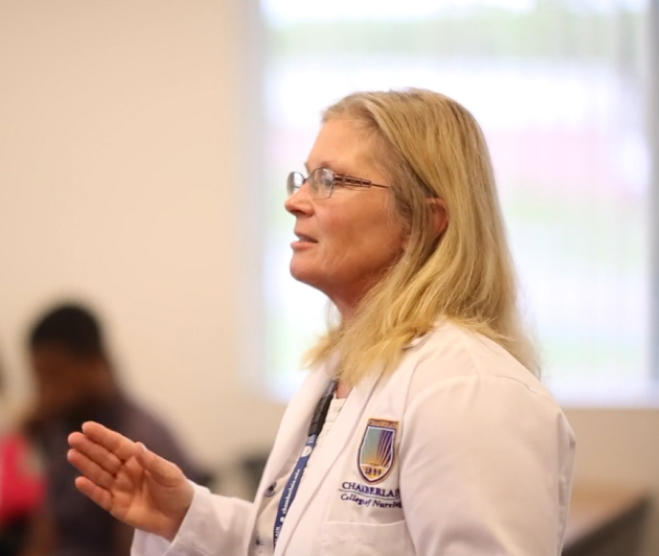
Ask a Student
What was online learning like?
“The professors I had in the online environment were so knowledgeable and supportive that they inspired me to pursue teaching as a career.”
Donna C.
RN-BSN to MSN graduate, education specialty track
Join a Proudly Accredited Institution
Are you looking for an accredited online master’s in nursing degree program?
See if you are eligible for special partner tuition rates
Chamberlain University has 4,500+ Healthcare and Educational Institution, College and Association Partner locations across the country. Enjoy the following benefits:
Search for your employer below to see if you are eligible for special partner tuition rates:
Master of Science in Nursing FAQs
A specialty track is a concentration. You must select one of eight specialty tracks in the MSN degree program (Adult-Gerontology Nurse Practitioner, Psychiatric Mental Health Nurse Practitioner, Educator, Executive, Family Nurse Practitioner, Healthcare Policy, Healthcare Policy and Informatics). When you graduate, you will earn a Master of Science in Nursing degree with the specialty of your choice. Specialty track availability varies by state. See which tracks are available in your state.
It is possible to change MSN nursing specialty tracks within all non-nurse practitioner tracks (Educator, Executive, Healthcare Policy and Informatics). If you wish to change tracks, we recommend that you do so while you are in your core courses because credits completed in the original specialty track will not transfer to a different specialty track. Switching into the Adult-Gerontology Acute Care Nurse Practitioner, Adult-Gerontology Primary Care Nurse Practitioner, Psychiatric Mental Health Nurse Practitioner, or the Family Nurse Practitioner specialty track is subject to Dean approval and availability.
Students who enroll in the Accelerated MSN Options will not be eligible to transfer to the traditional online MSN program.
Your admission representative can help identify if you qualify for tuition savings through a partnership with your employer, community college or association. Alternatively, you may qualify for a scholarship or grant for the online nursing masters program.
Call 877.751.5783 or request more information to learn more about financial assistance.
You will be responsible for finding your own preceptor or mentor, which includes the site where they work, to earn your master’s degree in nursing. Your experiential learning coordinator will provide guidance on how to locate a mentor or preceptor and a site. Once you've identified where you would like to complete your practicum your coordinator will begin to secure the necessary contracts on your behalf.
You may complete your practicum with your current employer as long as it is in a different department than you currently work in, and your mentor or preceptor is not your current supervisor. Please see the MSN Practicum Handbook, MSN AGACNP Practicum Handbook, MSN PMHNP Practicum Handbook, MSN AGPCNP Practicum Handbook, or MSN FNP Practicum Handbook for more information.
If you’ve tried to find a preceptor, but despite your best efforts, it hasn’t worked out—don’t worry. Chamberlain’s Practicum Commitment can help you identify an available masters in nursing practicum location and preceptor. You may be eligible* if you meet the following requirements:
- Request assistance at least three sessions (approximately six months) prior to starting each practicum course for which you are requesting support
- You can document at least three sites that have denied your practicum requests
- Complete any professional preparation tasks (if applicable) as assigned by an Experiential Learning Specialist (ELS) or other member of the Clinical Operations team.
*This service is for post-licensure nursing degree and certificate program students only, specifically RN to BSN Online Degree Completion Option, Master of Science in Nursing (MSN), Master of Science in Nursing Adult-Gerontology Acute Care Nurse Practitioner (MSN-AGACNP), Master of Science in Nursing Adult-Gerontology Primary Care Nurse Practitioner (MSN-AGPCNP), Master of Science in Nursing-Family Nurse Practitioner (MSN-FNP), Graduate Certificate in Family Nurse Practitioner (GC-FNP) and Doctor of Nursing Practice (DNP).
We recommend you take one class per session. Sessions are eight weeks long and our masters degree in nursing students average about 15-20 hours per week toward their studies when taking one class per session. If after your first course you feel you can successfully manage more than one course at a time, contact your student services team and ask to discuss an accelerated plan of study for your MSN degree.
All MSN nursing online classes will have no more than 20 students per class.
Communicating with your MSN nursing professors is vital to your success in your MSN program. In addition to all graduate faculty members being doctorally prepared, they also participate in an extensive training program to prepare them for online teaching and to provide you with the support and care you deserve. The following are the avenues for contacting your professors:
- Email and phone: Professors will provide their contact information in the syllabus. They are required to provide you with their email address and most provide their phone numbers with office hours. Professors typically respond within 24 hours on the weekdays and 48 hours over the weekend..
- Q&A forum: You will have a Q&A forum in every class you attend to post comments and questions that can be answered by anyone in the class, including the professor.
- Threaded discussions: Graduate nursing program professors are very good at participating in threaded discussions throughout the week and driving conversations to gain insightful information.
Support is essential in online MSN programs. Chamberlain has several resources that can help you become acclimated to the online classroom. Once you apply you will have access to Chamberlain Care Student Success Strategies, which provides information on time management, scholarly writing, using the library and more. You can also ask your admissions representative for a personal tour of the masters in nursing online environment in which you will be taking classes or you can view the Online Classroom Demonstration Video Series to learn about what you can expect when you log into your class.
We are dedicated to supporting you throughout your educational journey. To further support your success, a Student Online Readiness Assessment is designed to help assess the skills needed for success in your online MSN program courses. You will see the assessment listed as a task in the Canvas Learning Management System (LMS) course.
Chamberlain offers an Accelerated MSN Option and Accelerated MSN with Clinical Nursing Leadership Option. The Accelerated MSN Option and Accelerated MSN with Clinical Nursing Leadership Option are designed to prepare nurses for a variety of advanced roles in nursing practice, including those that require skill in delivering direct and indirect care; leading healthcare initiatives; and educating patients, staff and the community.
- Complete the Accelerated MSN Option in as few as 1.5 semesters
- Complete the Accelerated MSN with Clinical Nursing Leadership Option in as few as 2.5 semesters
In addition to the 144 hours of required practicum learning in the final required course of the Accelerated Master of Science in Nursing Option, students may choose to complete additional elective practicum hours in two additional 8-week sessions with 144 hours of practicum in each session. This ensures the completion of the 432 practicum hours required to qualify to take the CNL™ certification exam.
The Accelerated MSN Option and Accelerated MSN with Clinical Nursing Leadership Option provide increased flexibility and speed in the delivery of the MSN degree program to meet the needs of a wider range of masters in nursing students. Because of the integrative design of the curriculum, time to completion is shortened in comparison to other tracks or options within Chamberlain's MSN nursing degree program.
-
Within each eight-week session, both Accelerated MSN options allow you to complete courses and assignments within an individualized timeframe while maintaining weekly interaction with faculty in each course. This gives you more flexibility in managing work-life-family responsibilities while completing your nursing master degree coursework.
-
Students enrolled in the Accelerated MSN Options will take 2-3 courses per session, traditional MSN degree program students take 1 MSN course per session.
-
There is an Accelerated MSN Clinical Nursing Leadership Option. This option provides students with content that aligns with the Clinical Nurse Leader competencies.
No, students who enroll in the Accelerated MSN Options will not be eligible to transfer to the traditional MSN program.
Yes - you’ll have your transcript assessed for transfer credits that can cut down on general education courses.
Required MSN Courses
Looking for something else?
Explore our related programs.


